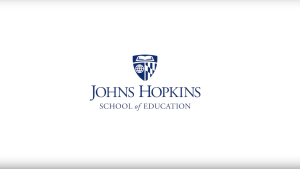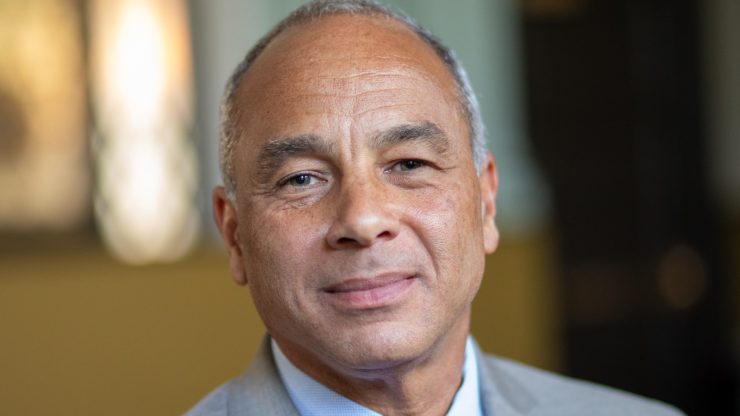As a leading graduate school of education, we build on a century-long foundation of excellence in leadership and service. But we are still young. Established as a standalone division of Johns Hopkins University in 2007, the School of Education was ranked among the top education schools in the country the following year — and every year thereafter.
Through our wide-ranging academic programs, we are the largest producer of new teachers for public schools in Baltimore City, our home community — where we also operate Henderson-Hopkins, one of the city’s top elementary/middle schools.
Our research and policy centers are recognized around the country for their evidence-based work in school-based health and safety, graduation improvement, equitable practices, social-emotional learning, tutoring, family engagement, literacy, counseling, and much more.
OUR MISSION
The mission of Johns Hopkins School of Education is to generate knowledge to inform policy and practice and educate society to address the most important challenges faced by individuals, schools, and communities.
At a Glance: A Leader in Research and Practice
-
1,2K Graduate Students
We enroll approximately 1,250 students each year.
-
60% Take Online Courses
Our diverse graduate students learn on campus, online, or a mix of both.
-
80+ Full-Time Faculty
Our full-time faculty also work with joint, courtesy, and emeritus professors.
-
5 Centers
Faculty conduct leading research-to-practice-to-policy work in five centers.
1,2K Graduate Students
We enroll approximately 1,250 students each year.
60% Take Online Courses
Our diverse graduate students learn on campus, online, or a mix of both.
80+ Full-Time Faculty
Our full-time faculty also work with joint, courtesy, and emeritus professors.
5 Centers
Faculty conduct leading research-to-practice-to-policy work in five centers.

Research Forward: The Johns Hopkins School of Education

Bold Ideas for Tackling Big Challenges
PEOPLE OF SOE
Christopher C. Morphew
Dean, Johns Hopkins School of Education
"Johns Hopkins University led the way in transforming the practice of medicine through rigorous application of evidence. Building on that foundation, we have the opportunity to transform education... putting success, safety, and well-being within the reach of all students."

Dean of the School of Education since 2017, Christopher Morphew has been commended for his entrepreneurial leadership, cross-divisional collaboration, and sound management in guiding the school toward meaningful growth and leadership in the field.
Keep up with our latest news.










